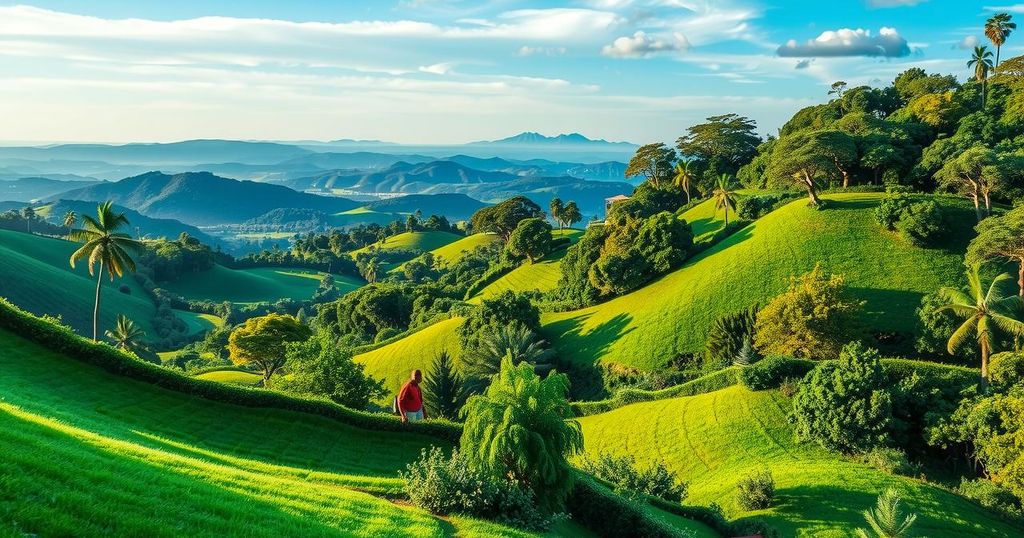Kagame’s Aspirations: Legacy and Challenges in Rwanda’s Future
Rwanda’s President Paul Kagame is investing in a significant airport project in Bugesera, aiming to enhance the country’s status as a commercial and tourism hub. While he envisions turning Rwanda into an African emirate, his leadership style garners criticism as more authoritarian. Simultaneously, regional political shifts and cultural developments across Africa raise questions about governance and sustainable progress.
In the verdant hills of Bugesera, just a short drive from Rwanda’s capital, Kigali, President Paul Kagame has set his sights on a major legacy project: a new airport complex. This ambitious endeavor, mostly financed by Qatar, represents a significant transformation for a nation once ravaged by genocide in 1994. Kagame envisions turning Rwanda into a thriving hub for commerce and tourism, showcasing the country’s natural beauty, particularly its famous mountain gorillas.
Kagame’s aspirations do not stop there. The president, who has shown a proclivity for the glamorous, aims to host Africa’s first Formula One circuit. This would not only elevate Rwanda’s international profile, but also symbolize a shift towards a more modern and developed image. The stakes are high as Kagame seeks to secure his legacy both at home and in the eyes of the world, amid an increasingly competitive political landscape.
Yet, Kagame has faced criticism over his leadership style, which some label dictatorial. His tight grip on power raises questions about the sustainability of the progress he has made. Detractors argue that his approach stifles dissent and limits the democratic space, creating a political environment that is difficult to navigate.
Meanwhile, across the continent, a multitude of events shape the current state of politics. Kurdish armed groups in the Middle East are opting for dialogue rather than violence, signaling a potential shift towards peace. In Israel, government ideologue Bezalel Smotrich remains steadfast regarding the ongoing conflict in Gaza, indicating tensions are still high in the region.
In the realm of culture, Africa’s rising diaspora is influencing global music trends, particularly with the emergence of Afrobeats. This genre’s increasing popularity is helping to redefine the continent’s creative exports, showcasing the socio-cultural evolution occurring across Africa. As young African women are drawn into lucrative jobs in weapon production under Putin’s regime, the implications for the continent’s youth are troubling and complex.
Kagame’s efforts in Rwanda present a microcosm of broader changes sweeping across Africa. They reflect a tension between development, governance, and the legacies left by historical conflicts. Ultimately, the question remains: will Kagame be able to navigate this challenging landscape successfully, preserving his own legacy while fostering genuine progress for his nation?
Paul Kagame’s vision for Rwanda exemplifies the confluence of ambition and complexity in African politics. As projects like the new airport present opportunities for transformation, underlying issues of governance loom large. The juxtaposition of Kagame’s aspirations with critical political and cultural shifts across the continent raises pertinent questions regarding the future trajectory of both Rwanda and Africa as a whole. Whether Kagame can secure his legacy while navigating these challenges remains to be seen.
Original Source: www.economist.com




Post Comment